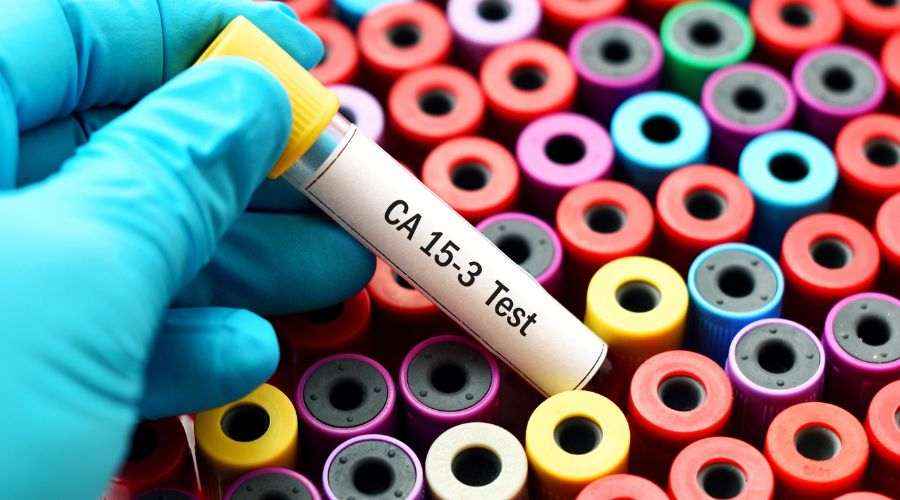What Can Cause CA 15-3 to Rise? Check the Details

Medically Reviewed By
Dr. Ragiinii Sharma
Written By Ruthika Bose
on May 7, 2024
Last Edit Made By Ruthika Bose
on Jul 19, 2025

Cancer antigen 15-3, also called CA 15-3, is a protein produced by the body's cells, especially the breast cells. It is considered a tumor marker, as the levels of this antigen help detect certain cancers.
It is found in breast tissues and measured through a blood test. When discharged into the bloodstream, the protein helps detect the presence of the antigen.
CA 15-3 doesn't cause cancer but helps identify if there are cancerous cells in the body and how they react to the treatment. The levels might increase if the tumor is growing in size.
At this point, consulting the doctor and taking the necessary precautions is essential to determining the right action.
When should you take this test?
If your healthcare provider notices some unusual changes in your body or there has been a family history of cancer, this test might be recommended. This test is also known as the CA breast test.
You might be suggested to take the test if you have ever undergone breast cancer treatment or are undergoing it. The test helps the doctors analyze the treatment's response and modify the course accordingly.
A test found that 80% of people with advanced-stage breast cancer that had spread to other parts of the body had elevated CA 15-3 levels. Breast cancer is the most common form of cancer, accounting for 16% of all female cancers and 22.9% of invasive cancers in women.
Regular screening and tracking of the levels help understand how effective the treatment is or if any health concerns need immediate attention.
Does breast cancer alone cause a rise in CA 15-3 levels?
Several other benign and malignant conditions can cause an elevation in the levels of CA 15-3 antigen, even in healthy individuals. Some of those conditions could be:
- Liver, lung, prostate, and pancreatic cancer.
- Acute hepatitis that causes inflammation in the lungs.
- Tuberculosis, which is caused by infections in the lungs
- Liver cirrhosis, which leads to scarring of the liver.
- Pelvic inflammatory diseases that affect the reproductive organs in women.
Even pregnancy is known to increase CA 15-3 levels. CA 15-3 levels might be higher than normal in these cases but not as high as in the case of breast cancer.
If the levels keep rising, the doctor can suggest tests and preventive measures to deal with the situation.
What do the test results indicate?
CA 15-3 test results will vary depending on age, gender, health conditions, family history, and other reasons. The correct interpretation is essential to understanding the cause and taking proper measures to lower the levels.
You can take a blood test to measure CA 15-3 levels. It is measured in units per milliliter. A reading equal to 30 U/mL or less is indicative that the levels are normal.
If the levels are high, do not panic. It does not mean that you have breast cancer. There are various factors, as mentioned above, that can lead to a change in CA 15-3 levels, increasing the protein content in the blood.
How do you prepare for the test?
The test requires no special preparation. However, your doctor needs to be informed about your health conditions and medications being taken to give you the correct advice to prepare for the test.
What do elevated levels of CA 15-3 indicate?
Elevated levels of CA 15-3 may indicate that the cancer has spread to other parts of the body or that the treatment is not producing effective results. A recurrence of cancer can also increase the CA 15-3 level, whereas a decrease in the level is indicative of a working treatment.
In the early stages of breast cancer, the levels may not be high. In certain cases, a person might have breast cancer, but the CA 15-3 levels might be normal. It was found that 20–25% of people with advanced breast cancer who had tumors did not release CA 15–3.
Doctors often suggest mammograms and other tests to detect the presence of cancerous cells.
Is there any risk involved in taking the test?
No such risk is involved in taking the test, but some people might experience lightheadedness after the test. Some highly sensitive people might experience bleeding, bruising, soreness, infection, or pain when the needle is inserted for blood collection.
Fasting is not required for this test, and food or drinks are not restricted before it.
Drinking a few glasses of water before the test is recommended for someone with small veins, as it plumps the veins, making the blood draw easier.
If swelling, use a cold compressor to reduce the pain and the lump. Gently rub the compressor on the affected area without pressing it for too long.
How can CA 15-3 levels be lowered?
Understanding the cause behind the rise of CA 15-3 will help lower the levels by taking the necessary measures.
Your doctor might suggest chemotherapy, radiation, surgery, and certain lifestyle modifications to help lower the CA 15-3 protein levels released into the bloodstream.
A healthy lifestyle and balanced eating habits, along with proper medication and treatment, are essential for overall well-being.
Conclusion
Due to lifestyle changes, people are developing lifestyle diseases, which are leading to major health concerns. If you detect any abnormality in your breast or notice unusual symptoms, consult your doctor and take the necessary tests as required. A CA 15-3 might not mean you have cancer, but it hints at health risks that can lead to complications. Take charge of your health without delay.
Redcliffe Labs offers the CA 15-3 test for just Rs. 1500. You can book the test conveniently through the app or website and enjoy home sample collection. Our phlebotomist ensures precision and professionalism while collecting samples. We deliver accurate reports within the given time. Trust us as your partner in diagnostics, and book tests conveniently.



